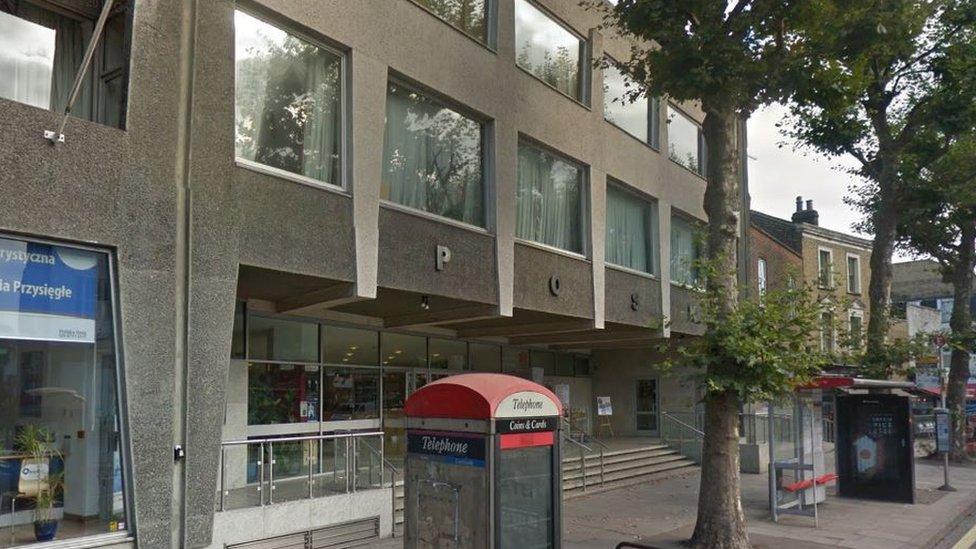'Go back home' - Bitter backlash post EU referendum
- Published
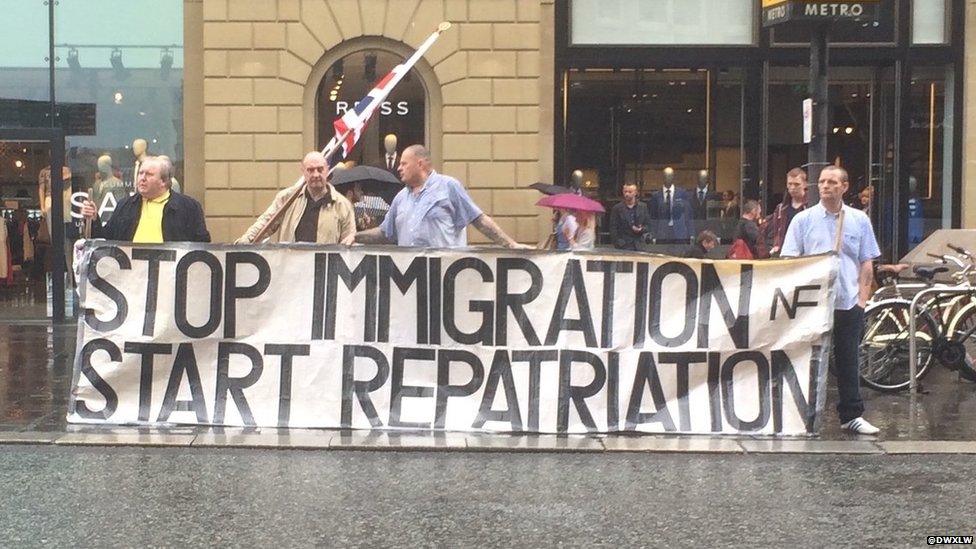
Since the EU referendum results revealed the UK voted to leave, people have been compiling reports of racism on social media.
A number of incidents where people have experienced hostility because of the colour of their skin and their ethnic background have been shared online.
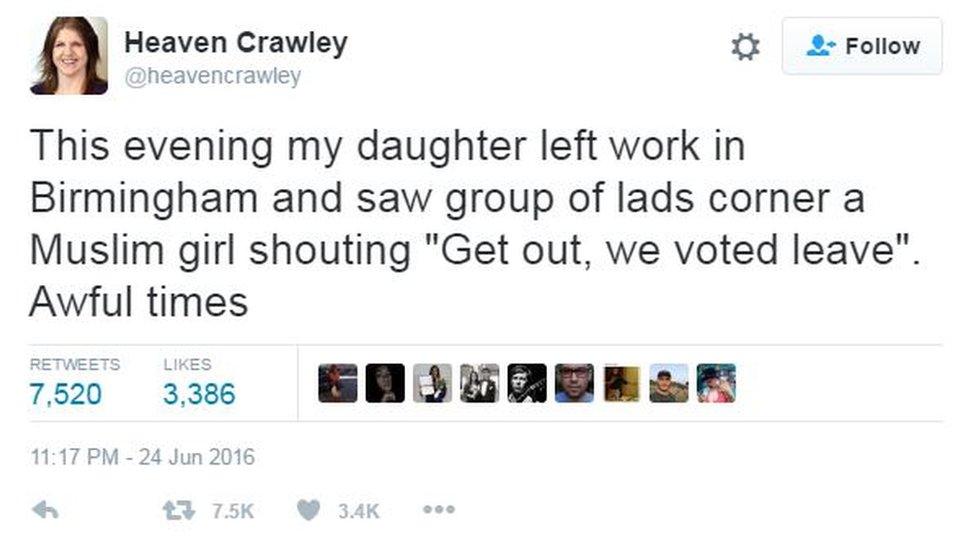
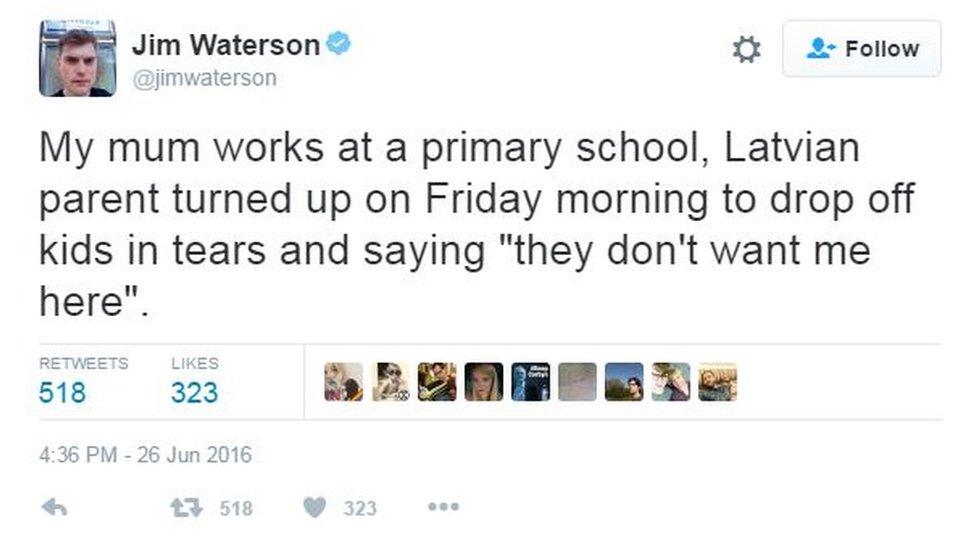
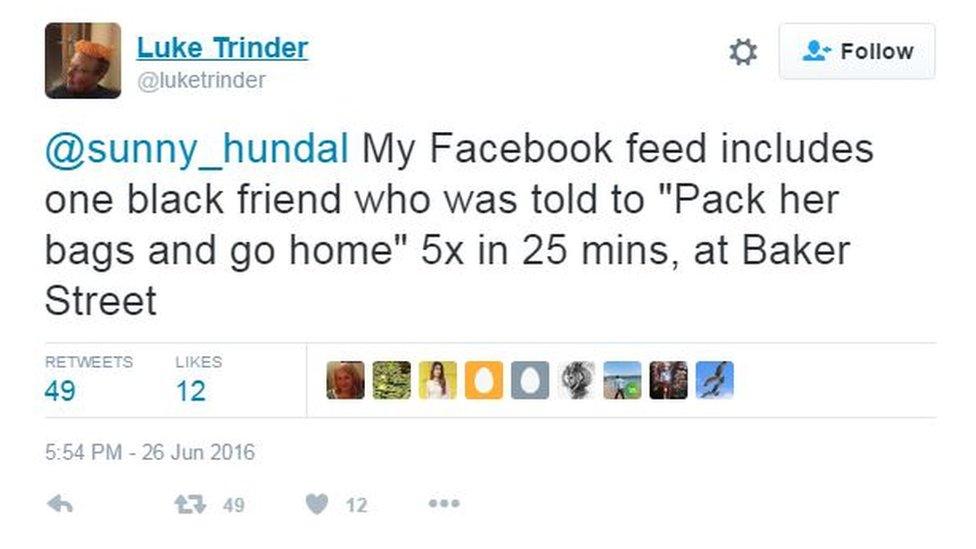
It is unclear whether the referendum result has brought about a rise in hostility, or if it is just a case of the sentiment being highlighted more since Friday.
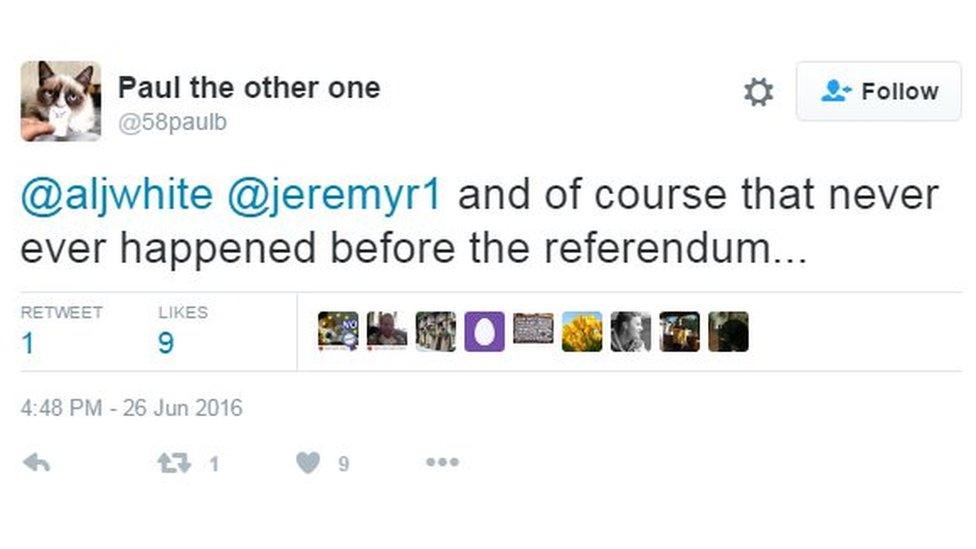
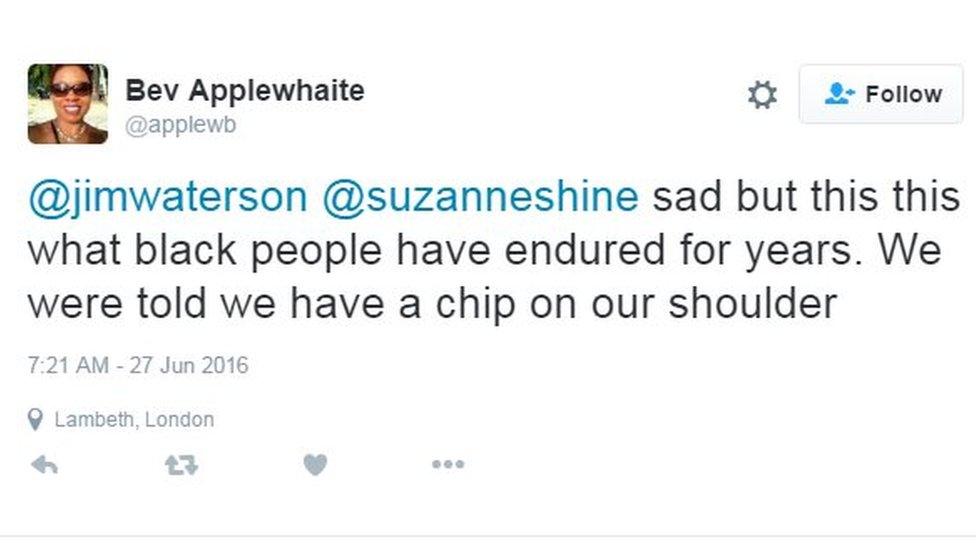
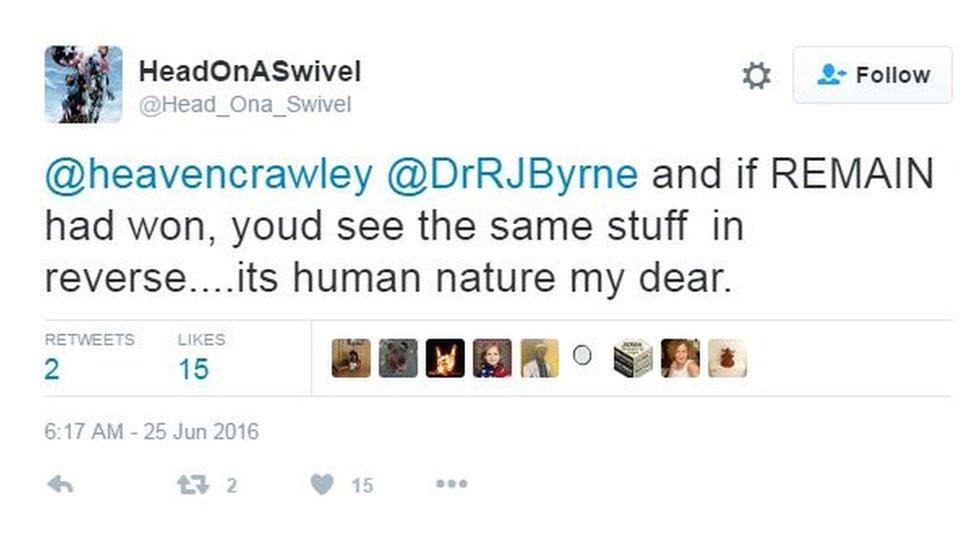
However the MP for Birmingham Yardley, Jess Phillips, external, believes there is a legitimate cause for concern. She has tweeted that she will ask a parliamentary question on the issue.
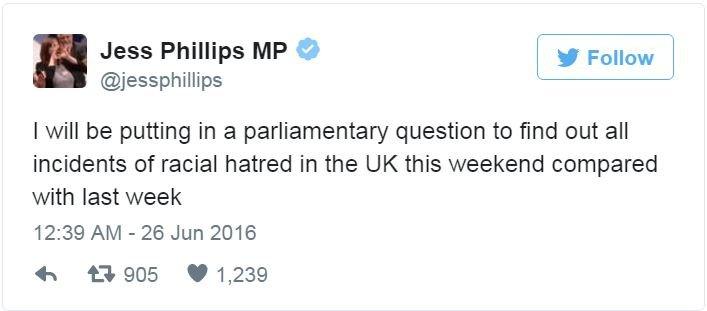
On Twitter the hashtag #postrefracism had been used 21,000 times by Monday morning. It was started by a group of the same name, which is calling for people to share their experiences.
'Pack your bags'
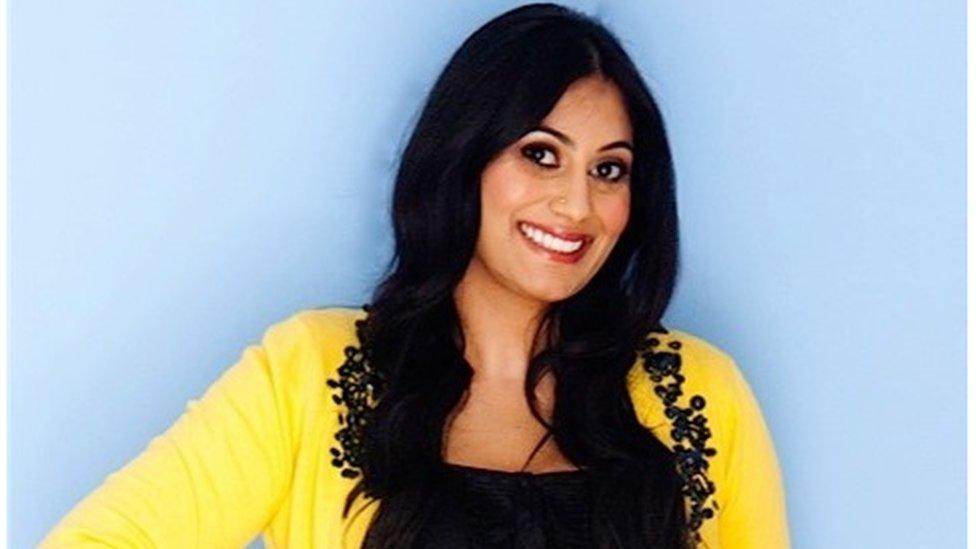
Wales-born Shazia Awan has been told to 'go home' on Twitter
Former Conservative parliamentary candidate Shazia Awan worked for the Stronger In campaign in Wales. She says she noticed a number of incidents of anti-foreign sentiment.
"When the Leave campaign focussed on the issue of immigration a few weeks before the result, I could feel the difference in how people were acting," she said.
"While I was campaigning, I was speaking to a black woman. A white man walked past and called her the N word."
After the referendum result, Shazia experienced a backlash herself when she tweeted her reaction to the outcome of the vote.
"After I came from the count on Friday morning I posted a tweet about David Cameron being the least worst thing about the Conservative party.
"Then I got a reply saying I should pack my bags and go home - I was born in Caerphilly in Wales.
"I don't like what this means for all of us."
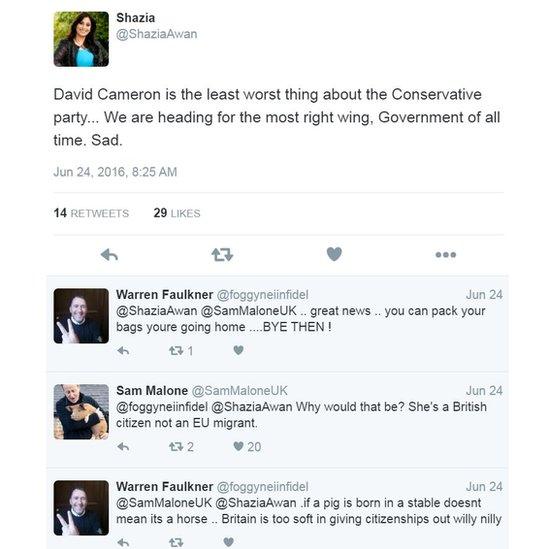
Ms Awan thinks the government should do more to address the negative consequences of the referendum result.
"I am so upset for this country because something quite dangerous has been unleashed.
"The result has legitimised people's race hatred. Although they don't make up the majority, they are an intolerant loud minority who are fundamentally wounding a whole community.
"There is a failure in government to acknowledge what is going on, and it says a lot about the state of UK politics at the moment.
"The prime minister pushed forward a community cohesion agenda, but this has gone.
"What is happening to our country? We will look back at this time as a dark time in the UK. I feel we have gone tumbling backwards in history.
"I saw this during the London mayoral campaign when individuals leading the Brexit campaign were calling Sadiq Khan too dangerous to be mayor - I would say Boris Johnson is too dangerous to lead the Conservative party and to become prime minister as he is far more interested in his own career than the welfare of this country."
The news correspondent Ciaran Jenkins posted anecdotes that he had witnessed: "Retired builder in Barnsley says he voted to 'send them foreigners home.' Tough time to be a migrant," he tweeted. , external
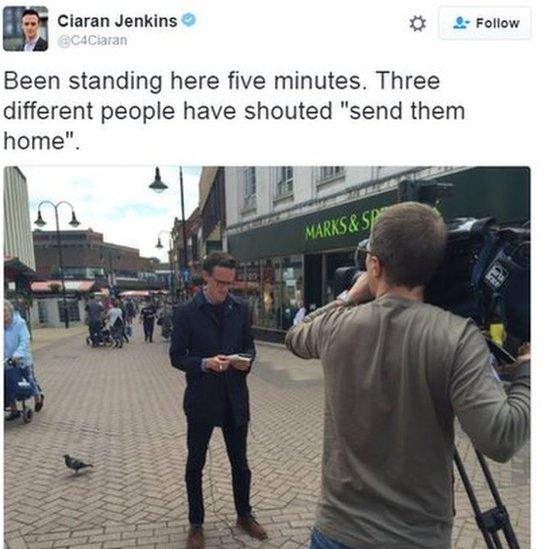
Worrying signs
When Sarah Childs saw stories of abuse appearing on her Twitter timeline, she wanted to highlight the issue.
"I was expecting this to happen as there was a lot of nastiness from both sides of the EU referendum campaign," said Sarah.
"I saw a theme running through my Twitter feed and thought I should gather the stories in a collection.
"I'm a white British person and I started the Facebook group with friends who are of Indian and Pakistani descent. "
Sarah and her friends created the page on Sunday morning and have already amassed over 5,000 members.
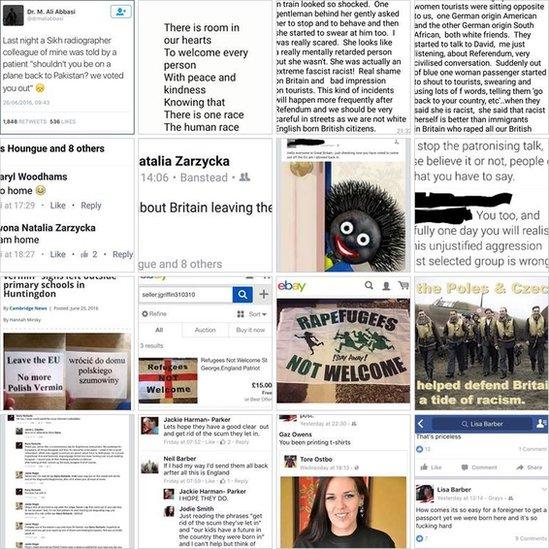
"We wanted to create a space for people who felt unsafe," explains Sarah.
"The idea was to show that this referendum has kicked up this problem and we need to be aware of this and do something about it, as well as dealing with other issues such as the economy.
"I spoke to people who voted leave about what is happening and many said we should just move on.
"I think it's easier for people to dismiss isolated incidents of abuse, but harder to ignore if the experiences are put together in one place.
"The abuse is hurting people and it is something we need to address."
- Published26 June 2016
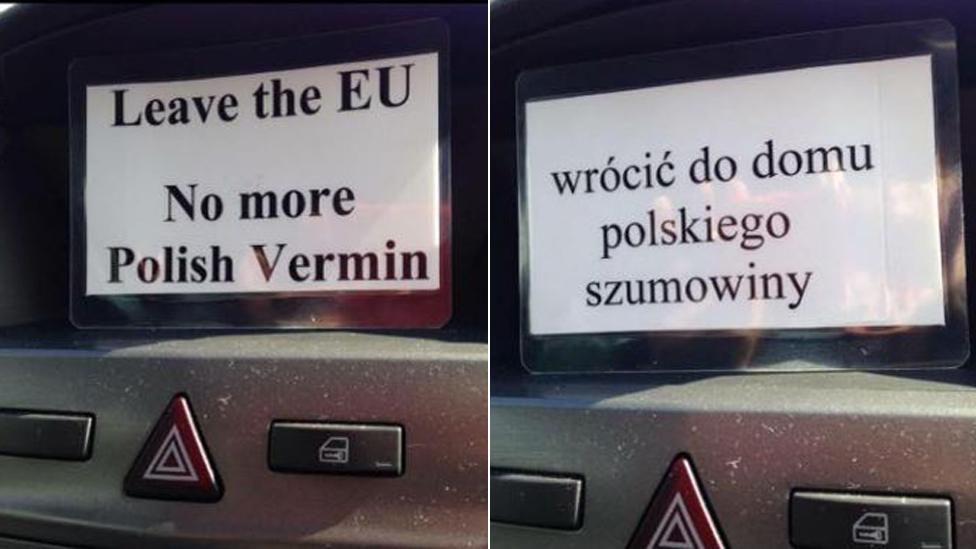
- Published26 June 2016
